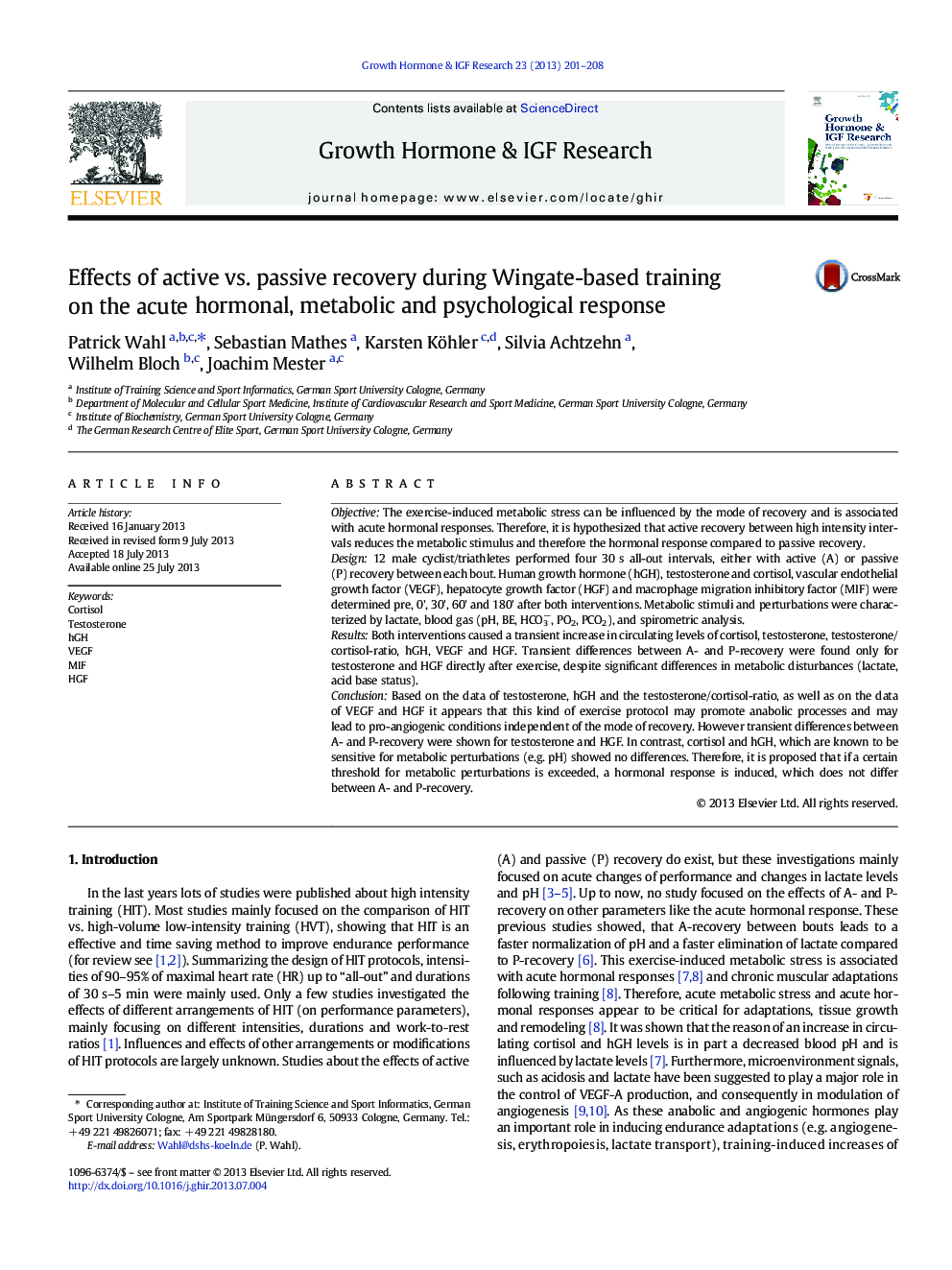| Article ID | Journal | Published Year | Pages | File Type |
|---|---|---|---|---|
| 2802555 | Growth Hormone & IGF Research | 2013 | 8 Pages |
ObjectiveThe exercise-induced metabolic stress can be influenced by the mode of recovery and is associated with acute hormonal responses. Therefore, it is hypothesized that active recovery between high intensity intervals reduces the metabolic stimulus and therefore the hormonal response compared to passive recovery.Design12 male cyclist/triathletes performed four 30 s all-out intervals, either with active (A) or passive (P) recovery between each bout. Human growth hormone (hGH), testosterone and cortisol, vascular endothelial growth factor (VEGF), hepatocyte growth factor (HGF) and macrophage migration inhibitory factor (MIF) were determined pre, 0', 30', 60' and 180' after both interventions. Metabolic stimuli and perturbations were characterized by lactate, blood gas (pH, BE, HCO3−, PO2, PCO2), and spirometric analysis.ResultsBoth interventions caused a transient increase in circulating levels of cortisol, testosterone, testosterone/cortisol-ratio, hGH, VEGF and HGF. Transient differences between A- and P-recovery were found only for testosterone and HGF directly after exercise, despite significant differences in metabolic disturbances (lactate, acid base status).ConclusionBased on the data of testosterone, hGH and the testosterone/cortisol-ratio, as well as on the data of VEGF and HGF it appears that this kind of exercise protocol may promote anabolic processes and may lead to pro-angiogenic conditions independent of the mode of recovery. However transient differences between A- and P-recovery were shown for testosterone and HGF. In contrast, cortisol and hGH, which are known to be sensitive for metabolic perturbations (e.g. pH) showed no differences. Therefore, it is proposed that if a certain threshold for metabolic perturbations is exceeded, a hormonal response is induced, which does not differ between A- and P-recovery.
